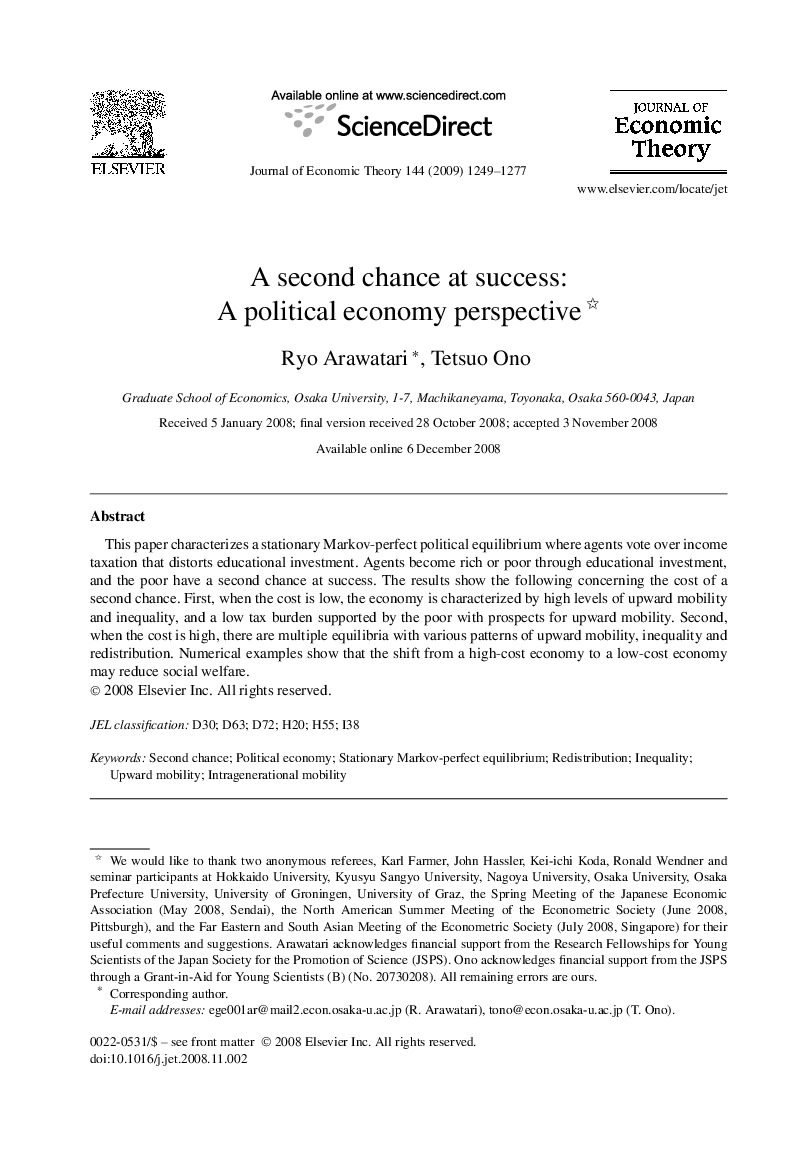| Article ID | Journal | Published Year | Pages | File Type |
|---|---|---|---|---|
| 957329 | Journal of Economic Theory | 2009 | 29 Pages |
Abstract
This paper characterizes a stationary Markov-perfect political equilibrium where agents vote over income taxation that distorts educational investment. Agents become rich or poor through educational investment, and the poor have a second chance at success. The results show the following concerning the cost of a second chance. First, when the cost is low, the economy is characterized by high levels of upward mobility and inequality, and a low tax burden supported by the poor with prospects for upward mobility. Second, when the cost is high, there are multiple equilibria with various patterns of upward mobility, inequality and redistribution. Numerical examples show that the shift from a high-cost economy to a low-cost economy may reduce social welfare.
Keywords
Related Topics
Social Sciences and Humanities
Economics, Econometrics and Finance
Economics and Econometrics
Authors
Ryo Arawatari, Tetsuo Ono,
